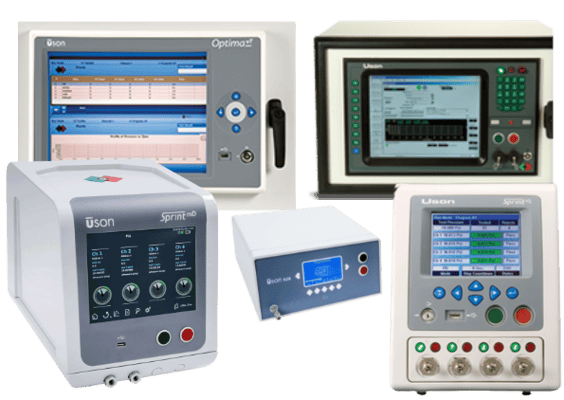What is a Leak Tester?

What is a Leak Tester?
A large portion of the population has no idea what a leak tester is, or the role it plays on products used every day. Have you ever stashed a few extra packets of sugar in your bag only to find a heap of the sweet stuff all over your things? Or maybe that package of smoked trout you picked up from the fish market started leaking before making it home?
These are minor leak transgressions, however, imagine the consequences of a leak in your power steering, brake pads, even hospital blood bags and catheters. These leaks could pose serious, even fatal, risks. Luckily, products must meet certain requirements before being released to the public, and passing a leak test is one of them.
What are the Different Types of Leak Tests?
Whether it’s through a manufacturing defect such as a crack or broken seal, or simply an imperfection in the product design, any gas or liquid that unintentionally flows through an object signifies a leak. Leak tests are used to identify a leak exists and measure the size of the leak.
While we’d like to believe every product on the market can offer a 100% leak-free guarantee, most manufacturers allow for a specified “leak limit” when approving products good for public use. It’s within this scale that a leak test is used to determine if the product or system is functioning properly.
There are several types of leak tests: pressure, pressure decay, mass flow, trace gas, flow tests, etc. How you decide which one to use depends on the product or system you are testing. For example, a mass flow test is highly effective in detecting small leaks in gas meters, appliances and exhaust systems. So, the next time you’re worried your car radiator is leaking coolant, you’ll know exactly which leak test would yield the most accurate results.
Industry-Specific Leak Tests
With a greater understanding of what a leak test is, it’s easy to realize just how many products and systems would need to be tested before becoming available on the market. At Uson, we work with four major industries that need our services:
Whether you’re a car owner or a mass commuter, it’s assumed the majority of us experience modern transportation every single day. The engines, fuel injectors, transmissions, even the cooling systems of cars and buses need to be tested and retested before going to market.
Uson tests the power steering, axles, cylinder heads, engine cavity, brake calipers, emission controls, exhaust systems, and fuel systems among a number of other components to ensure you get where you’re going in a safe, reliable way.
Whether it’s for a regular check-up or a serious surgery, patients need to know the medical equipment being used can provide the best care. Uson works with leading medical device manufacturers to ensure the peak performance of a wide range of components and assemblies like aspirators, blood bags, bottles and flasks, catheters, centrifuges, well plates and even chemotherapy pumps.
Going to the doctor’s office can be stressful enough, but because of extensive leak testing, you can rest assured the equipment has been vetted by the experts.
In such a fast-paced economy, there is an expectation to deliver more models, more options, and more units in just about every market. Industrial companies specifically rely on tests to identify any product flaws, machinery faults and recalls down the line. Imagine the headache of a constantly leaking faucet or a fire sprinkler leak. Luckily, Uson created ways to avoid that.
Leak tests are used on a variety of household and daily systems manufactured in the industrial realm: Beverage dispensers, camping equipment, coffee makers, dishwasher components, faucets, and garbage disposals.
Think of all the various items packaging manufacturers are asked to box, bottle or bag. Whether it’s the plastic encasing your kid’s applesauce or a sterile package for a surgical product, almost everything we consume comes in a package.
For this industry, leak testing is not a luxury expense, it’s a necessity. Finding the most effective way to package goods like medical devices, coffee and cooked meats is the challenge Uson solves.
We Need Leak Tests
Leak testing is an integral step in the manufacturing process. As consumers, we have certain standards we expect when buying or using a product and without leak tests, we’d not only be disappointed, but we could also be putting ourselves at risk. We can only attribute the safety and assurance we feel when using everyday objects with the leak tests performed before releasing products to the public.
The SaaS Sales & Marketing Acronym Bible
Industries
 English
English
 简体中文
简体中文
 Deutsch
Deutsch
 Español
Español
